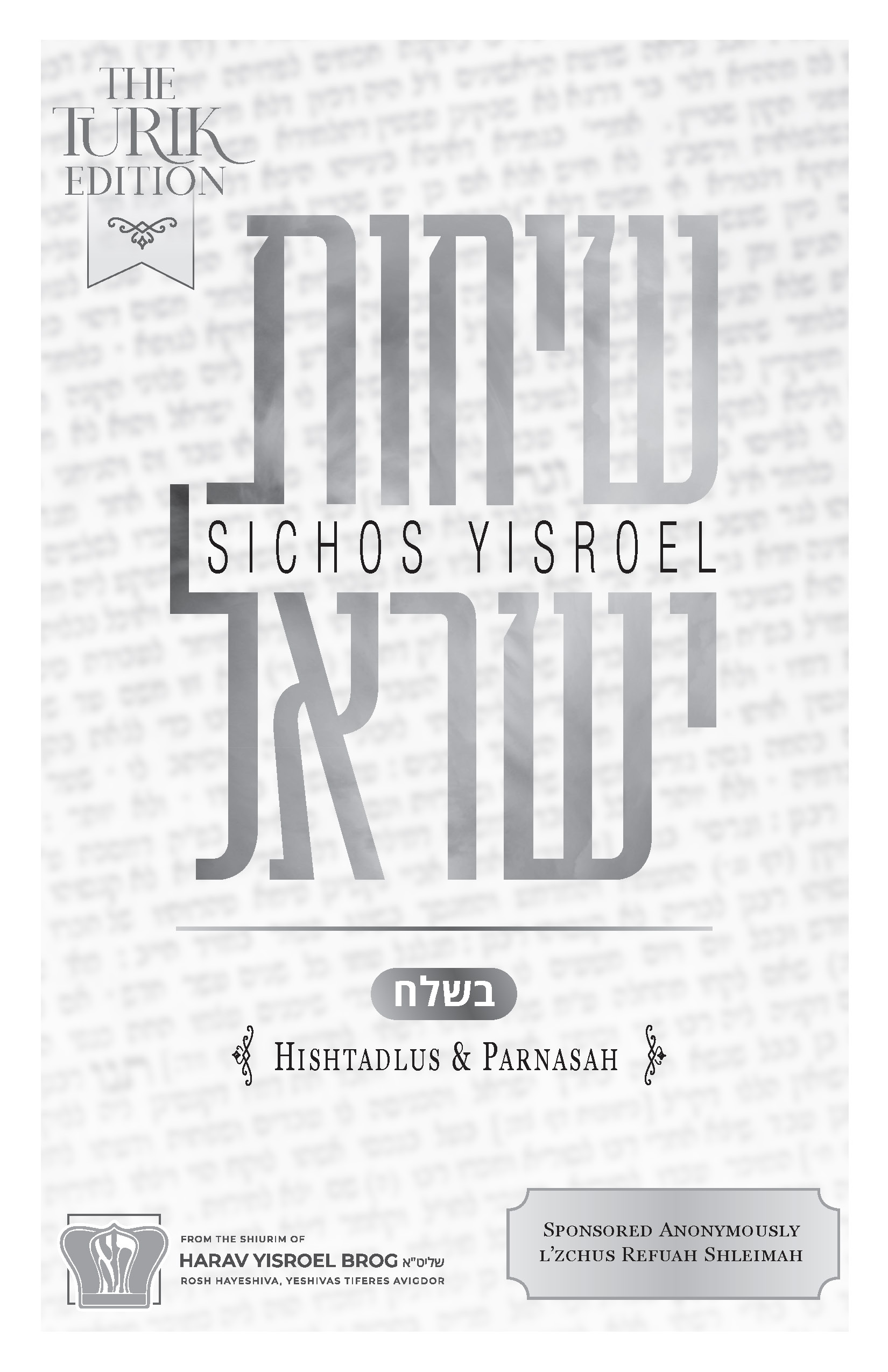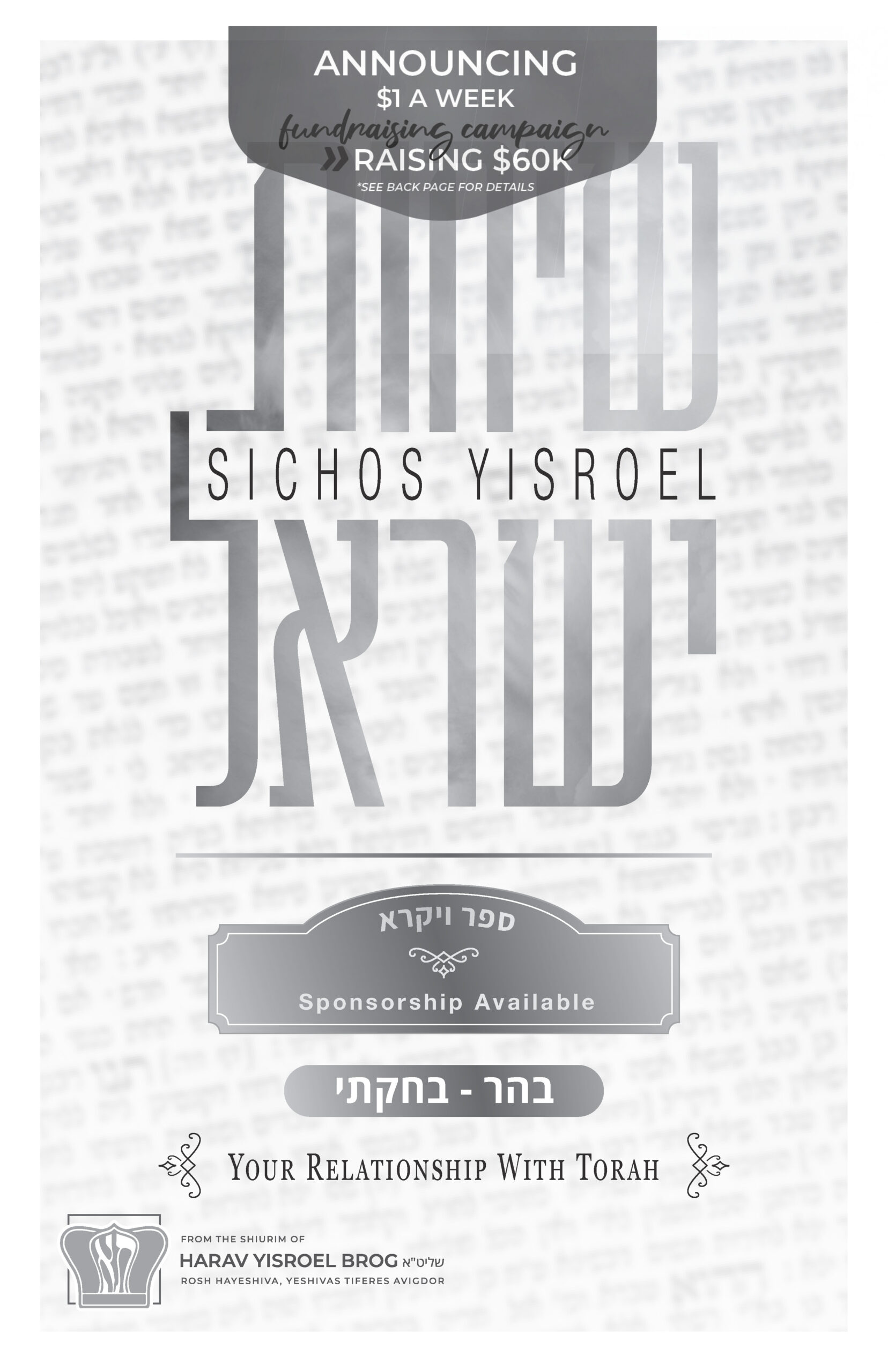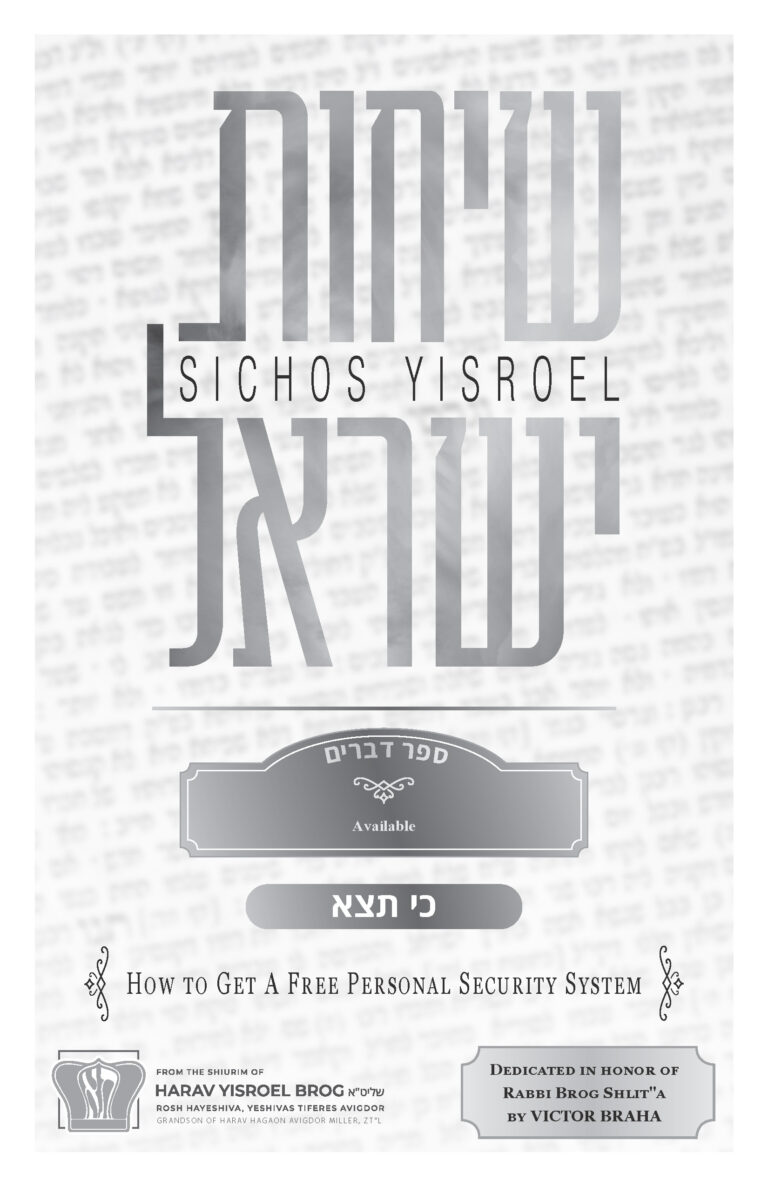Beshalach 5782 – Hishtadlus & Parnasah
Sponsored Anonymously l’zchus Refuah Shleimah. Shiur presented in 5778.

Sponsored Anonymously l’zchus Refuah Shleimah. Shiur presented in 5778.
Shiur presented in 5779 A Superficial Outlook on Yomim Tovim This year, B’ezras Hashem, we will get another chance at celebrating the Yom Tov of Chanukah. Most people have a childlike view of Chanukah, just like everything else in their lives because when they were children, their parents introduced them to Chanukah through their childish…

The gemara Yevamos (62b) tells us about the 12,000 pairs of talmidim that Rabbi Akiva had. They didn’t learn in one building. They were spread out from a place called Gabos until Antifras – a network of yeshivos under Rabbi Akiva’s leadership. To imagine such a yeshivah is unbelievable.

Parshas Bechukosai falls out almost every year right before Shavuos, or close to Shavuos. The subject of Parshas Bechukosai, as many people will tell you, is klalos and brachos, or tochachah. But the emes is that tochachah is only the end result. Many of us deal with symptoms but we don’t think about the reason for the symptoms. You always have to search for the reason for the symptoms.

Rav Chatzkel Levenstein, the mashgiach of Mir Yeshiva, once came into the beis medrash of Mir and went over to two bochurim who were learning and asked them what day in Elul it was. They didn’t know right away, so they started to make a cheshbon, trying to remember when Rosh Chodesh Elul was. One of them turned to the other and asked, “Nu, what day of Elul is it?” His chavrusa said, “It’s either the 9th or 10th of Elul.” When Rav Chatzkel heard this, he gave a shrei and said, “Bochurim! You don’t know what day it is in Elul?!
In this week’s parshah it says “all the males by their skulls,” by their heads. So the Rema miPano, who authored a sefer called Asarah Ma’amaros, writes that Moshe Rabeinu would look at every single Jew when they came before him to present themselves. Moshe Rabeinu was able to see with ruach hakodesh how many times this individual would be required to come back in the world through gilgul. That’s what the remez of legilgelosam means.

This week’s parshah is the parshah of zivugim. The gemara in Brachos (8a)says when a man married a woman, they would ask him the following: מָצָא או מוֹצֵא, as the passuk in Mishlei (18:22) says: מָצָא אישה מצא טוב – he who finds [motzo] a wife finds goodness, or [motzeh] מוֹצֵא, as the passuk in Koheles (7:26) says, מוֹצֵא אני מר ממות את האישה – I find [motzeh] the woman more bitter than death.[i] It could be the ultimate tov or it can be the ultimate ra.